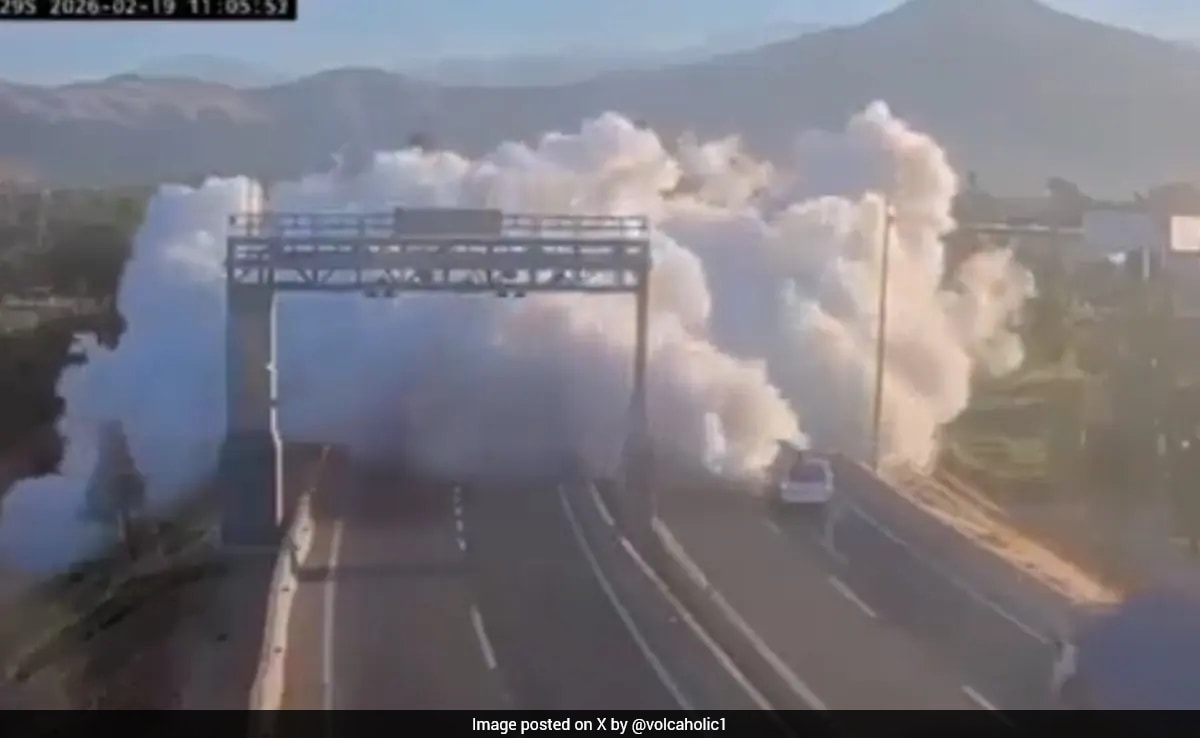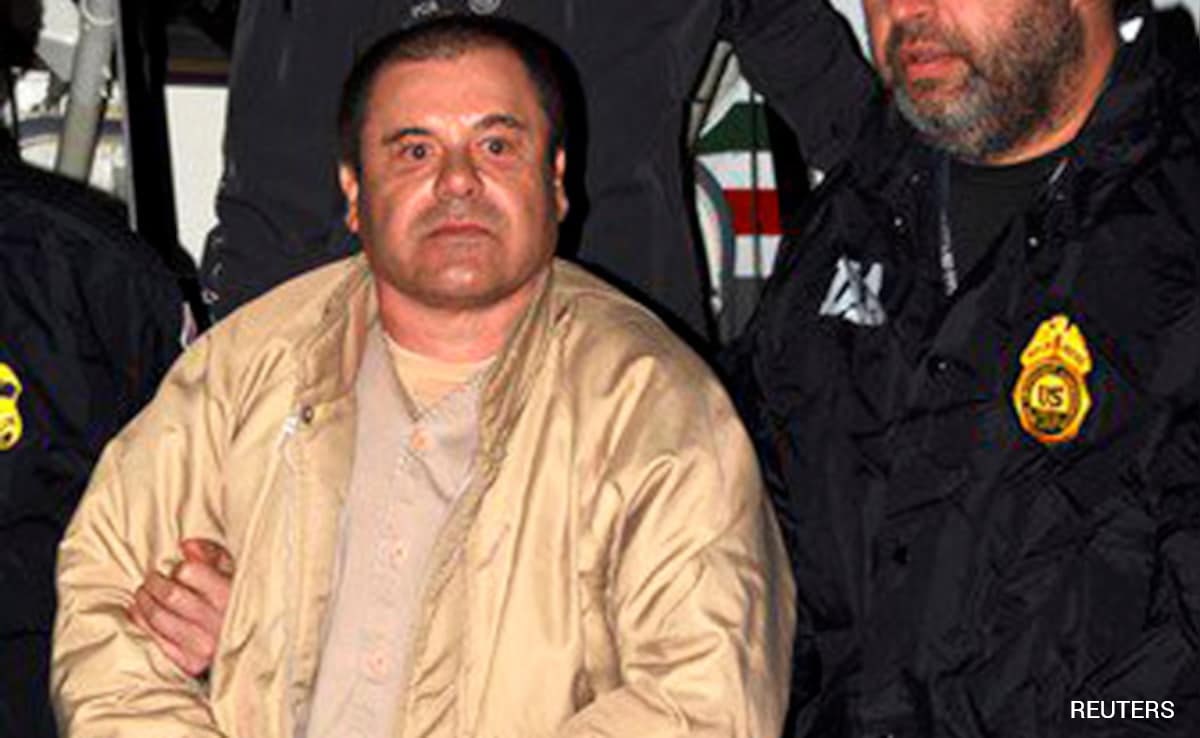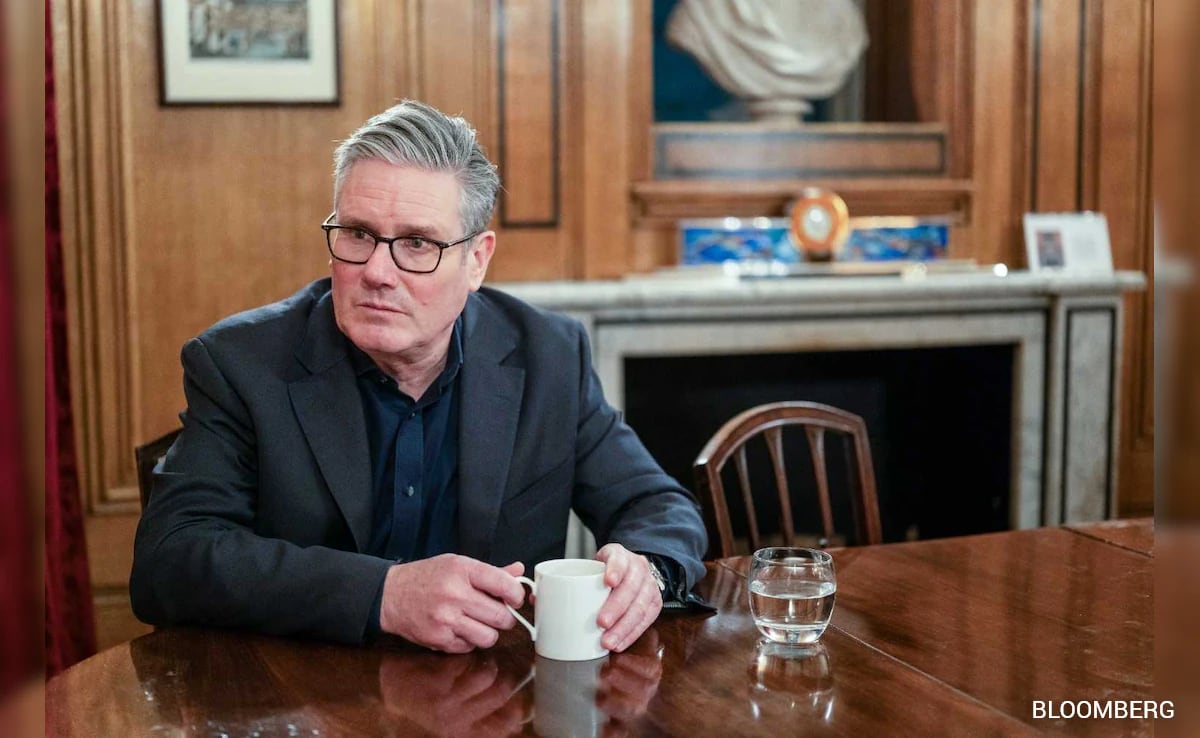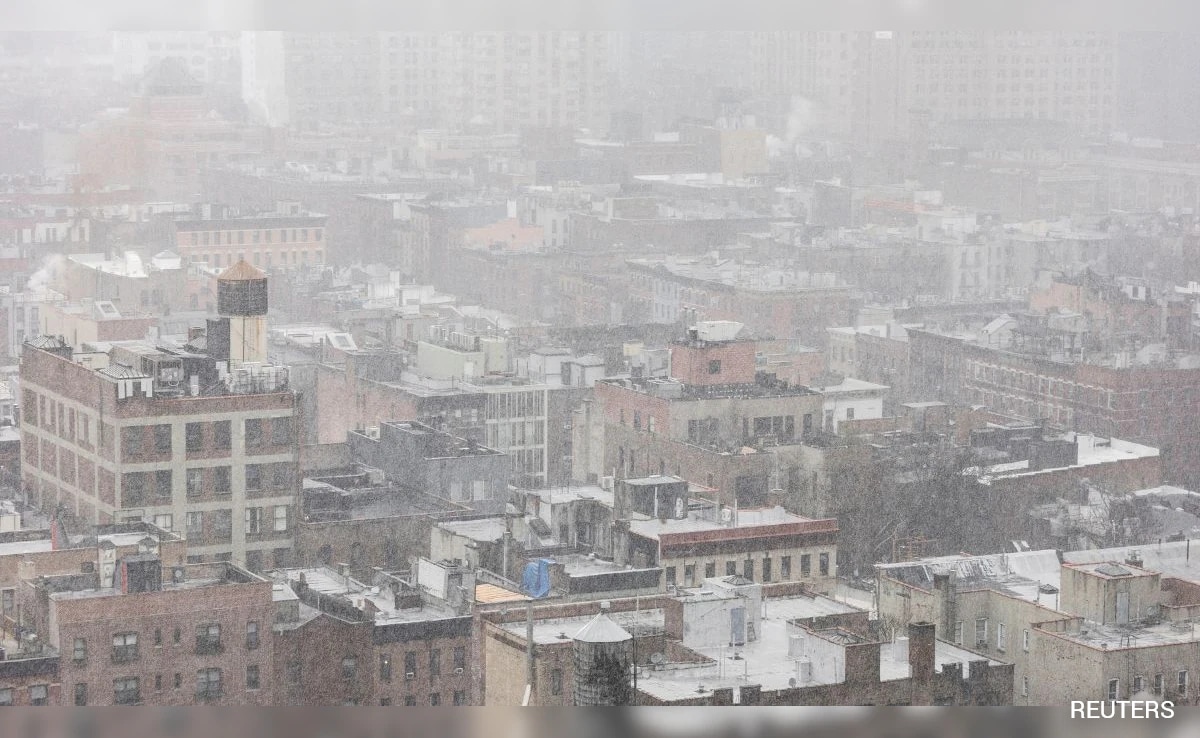NATO foreign ministers will gather in Brussels Wednesday to discuss support for Ukraine after the discovery of piles of dead bodies in Kyiv’s suburbs spurred Western promises to punish the Kremlin.
Ukrainian leaders say the grim killings in Bucha aren’t the exception, warning the withdrawal of Russian forces in other parts of the country revealed looted homes, torture and shootings of civilians. The NATO meeting comes after demands from Ukrainian President Volodymyr Zelensky to do more, and internal divisions over the extent to which Russia poses a direct threat to the alliance.
The United States and its allies are stepping up sanctions as they accuse Moscow of war crimes. The Biden administration on Wednesday will announce a ban on new investments in Russia and more sanctions on Russian enterprises and government officials, while the European Union is debating an import ban on Russian coal as part of a new package of penalties.
Here’s what to know
Is Ukraine winning the information war? Depends on who you ask.
Return to menuUkraine to receive Soviet-era tanks from Czech Republic, lawmaker says
Return to menuThe Czech Republic has dispatched tanks and other armored vehicles to Ukraine, a Czech lawmaker said Tuesday, after footage emerged on local media of military vehicles loaded onto trains. Ukrainian officials have repeatedly asked their Western partners for armored vehicles, and the Czech delivery marks one of the first such shipments since Moscow invaded Kyiv on Feb. 24.
The shipment includes Soviet-designed T-72 tanks, said Ondrej Benesik, who chairs a European affairs committee in the Czech legislature. The Wall Street Journal first reported the development, citing three Czech and Slovak officials.
The Biden administration reportedly plans to work with allies to transfer Soviet-made tanks to Ukraine. It wasn’t clear whether the Czech shipment was part of that effort. The Pentagon and administration officials could not be immediately reached for comment.
Germany and Australia have both recently said that they would send armored vehicles to Ukraine.
The Czech Republic has dispatched tanks and other armored vehicles to Ukraine, a Czech lawmaker said Tuesday, after footage emerged on local media of military vehicles loaded onto trains. Ukrainian officials have repeatedly asked their Western partners for armored vehicles, and the Czech delivery marks one of the first such shipments since Moscow invaded Kyiv on Feb. 24.
The shipment includes Soviet-designed T-72 tanks, said Ondrej Benesik, who chairs a European affairs committee in the Czech legislature. The Wall Street Journal first reported the development, citing three Czech and Slovak officials.
The Biden administration reportedly plans to work with allies to transfer Soviet-made tanks to Ukraine. It wasn’t clear whether the Czech shipment was part of that effort. The Pentagon and administration officials could not be immediately reached for comment.
Germany and Australia have both recently said that they would send armored vehicles to Ukraine.
NATO says Ukraine to decide on peace deal with Russia — within limits
Return to menuUkraine’s Western backers have vowed to respect Kyiv’s decisions in any settlement to end the war with Russia, but with larger issues of global security at stake, there are limits to how many compromises some in NATO will support to win the peace.
How to end the fighting and support Ukraine will be among the sharpest discussions at a gathering of NATO foreign ministers in Brussels that starts Wednesday. The United States and its allies say that Ukraine must be the ultimate decider as it defends itself, and that it shouldn’t be pushed to make compromises or encouraged to fight longer than it is willing.
But Kyiv’s decisions — and any concessions President Volodymyr Zelensky might embrace — will help determine whether the Kremlin is chastened or emboldened, and nations that have territorial ambitions over their neighbors, such as China, will be watching the outcome.
Ukraine’s Western backers have vowed to respect Kyiv’s decisions in any settlement to end the war with Russia, but with larger issues of global security at stake, there are limits to how many compromises some in NATO will support to win the peace.
How to end the fighting and support Ukraine will be among the sharpest discussions at a gathering of NATO foreign ministers in Brussels that starts Wednesday. The United States and its allies say that Ukraine must be the ultimate decider as it defends itself, and that it shouldn’t be pushed to make compromises or encouraged to fight longer than it is willing.
But Kyiv’s decisions — and any concessions President Volodymyr Zelensky might embrace — will help determine whether the Kremlin is chastened or emboldened, and nations that have territorial ambitions over their neighbors, such as China, will be watching the outcome.
More than 3,800 Ukrainians evacuated from besieged cities, official says
Return to menuMore than 3,800 Ukrainians were evacuated Tuesday from cities under intense threat from Russian forces, according to Ukrainian Deputy Prime Minister Iryna Vereshchuk.
Of the 3,846 people evacuated Tuesday, most were from Ukraine’s embattled southern region, where cities such as Mariupol have been devastated, Vereshchuk said in a Telegram post. More than a thousand evacuees fled from Luhansk, near Ukraine’s eastern border with Russia — and where Western officials have said Moscow is planning to focus its military efforts.
A Red Cross humanitarian convoy trying to reach Mariupol was stopped overnight Monday into Tuesday, Vereshchuk noted. The convoy has been trying to get to Mariupol, where thousands are stranded with little food, water and electricity, since Friday, the Red Cross said.
More than 3,800 Ukrainians were evacuated Tuesday from cities under intense threat from Russian forces, according to Ukrainian Deputy Prime Minister Iryna Vereshchuk.
Of the 3,846 people evacuated Tuesday, most were from Ukraine’s embattled southern region, where cities such as Mariupol have been devastated, Vereshchuk said in a Telegram post. More than a thousand evacuees fled from Luhansk, near Ukraine’s eastern border with Russia — and where Western officials have said Moscow is planning to focus its military efforts.
A Red Cross humanitarian convoy trying to reach Mariupol was stopped overnight Monday into Tuesday, Vereshchuk noted. The convoy has been trying to get to Mariupol, where thousands are stranded with little food, water and electricity, since Friday, the Red Cross said.
In shattered Chernihiv, Russian siege leaves a city asking, ‘Why?’
Return to menuCHERNIHIV, Ukraine — This city endured weeks of Russian siege, but just barely.
Officials here, 90 miles north of Kyiv, buried hundreds of civilians in makeshift coffins and hastily dug trenches. Families held mass funerals, fearing they could be killed if they lingered in the cemetery. Water and electricity were almost entirely cut off, and no aid could come in.
More than half of the city’s prewar population of 300,000 fled. Those who stayed behind spent much of the past five weeks huddled underground as Russian forces pounded residential neighborhoods with missiles and mortar fire. The civilian death toll remains unclear, but Mayor Vladyslav Atroshenko said at times the city buried up to 100 people in a day.
“They were not fighting the army here,” he said in an interview from his office in the city’s historic center, which was damaged when two missiles struck nearby on Feb. 27. “They were bombing civilians.”
CHERNIHIV, Ukraine — This city endured weeks of Russian siege, but just barely.
Officials here, 90 miles north of Kyiv, buried hundreds of civilians in makeshift coffins and hastily dug trenches. Families held mass funerals, fearing they could be killed if they lingered in the cemetery. Water and electricity were almost entirely cut off, and no aid could come in.
More than half of the city’s prewar population of 300,000 fled. Those who stayed behind spent much of the past five weeks huddled underground as Russian forces pounded residential neighborhoods with missiles and mortar fire. The civilian death toll remains unclear, but Mayor Vladyslav Atroshenko said at times the city buried up to 100 people in a day.
“They were not fighting the army here,” he said in an interview from his office in the city’s historic center, which was damaged when two missiles struck nearby on Feb. 27. “They were bombing civilians.”
Invasion ‘greatest threat’ to security in decades, top U.S. general says
Return to menuGen. Mark A. Milley, chairman of the Joint Chiefs of Staff, said Tuesday in testimony before Congress that Russia’s invasion of Ukraine is the “greatest threat to the peace and security of Europe and perhaps the world in my 42 years of service in uniform.”
Milley touted the presence of U.S. forces in Europe as a strong deterrent to aggression by Russia, and floated the idea of rotating troops through bases in Poland, Romania and the Baltic states to create the effect of permanently stationing there. He noted that those nations were likely to support and pay for such bases.
“Your military stands ready to do whatever is directed to maintain peace and stability on the European continent,” he said.
The general said that Ukrainian military officials told him U.S. training since 2014 has been beneficial, especially in terms of mission command, a tactic employed by U.S. forces that includes “distributed, junior-level leadership” to make decisions and take command.
“That is not present in the Russian army,” Milley said, adding that the tactic is “working out extraordinarily well on the battlefield” for Ukraine.
Russia has also struggled to fight in urban environments, notably in large cities such as Kharkiv and the capital, Kyiv, Milley said.
“Forces that are optimized to fight in rural, wooded, rolling hill-type terrain are going to have very, very difficult times in urban terrain,” he said. “That’s one of the reasons why the Russians are withdrawing from Kyiv.”
Gen. Mark A. Milley, chairman of the Joint Chiefs of Staff, said Tuesday in testimony before Congress that Russia’s invasion of Ukraine is the “greatest threat to the peace and security of Europe and perhaps the world in my 42 years of service in uniform.”
Milley touted the presence of U.S. forces in Europe as a strong deterrent to aggression by Russia, and floated the idea of rotating troops through bases in Poland, Romania and the Baltic states to create the effect of permanently stationing there. He noted that those nations were likely to support and pay for such bases.
“Your military stands ready to do whatever is directed to maintain peace and stability on the European continent,” he said.
The general said that Ukrainian military officials told him U.S. training since 2014 has been beneficial, especially in terms of mission command, a tactic employed by U.S. forces that includes “distributed, junior-level leadership” to make decisions and take command.
“That is not present in the Russian army,” Milley said, adding that the tactic is “working out extraordinarily well on the battlefield” for Ukraine.
Russia has also struggled to fight in urban environments, notably in large cities such as Kharkiv and the capital, Kyiv, Milley said.
“Forces that are optimized to fight in rural, wooded, rolling hill-type terrain are going to have very, very difficult times in urban terrain,” he said. “That’s one of the reasons why the Russians are withdrawing from Kyiv.”
E.U. proposes ban on Russian coal after Bucha massacre in Ukraine
Return to menuThe European Commission is proposing a ban on Russian coal — but not oil or gas — as part of a new package of sanctions in response to possible war crimes in Bucha, Ukraine.
European Commission President Ursula von der Leyen said the latest sanctions package seeks to ban Russian coal imports, impose sanctions on four Russian banks and ban Russian vessels from European Union ports, among other measures. The proposal will be debated by E.U. ambassadors on Wednesday.
The package does not meet demands for an embargo on Russian oil or natural gas and is unlikely to quiet calls for the E.U. to do more.
The European Commission is proposing a ban on Russian coal — but not oil or gas — as part of a new package of sanctions in response to possible war crimes in Bucha, Ukraine.
European Commission President Ursula von der Leyen said the latest sanctions package seeks to ban Russian coal imports, impose sanctions on four Russian banks and ban Russian vessels from European Union ports, among other measures. The proposal will be debated by E.U. ambassadors on Wednesday.
The package does not meet demands for an embargo on Russian oil or natural gas and is unlikely to quiet calls for the E.U. to do more.
U.S. to send Ukraine $100 million worth of antitank Javelins
Return to menuThe Biden administration on Tuesday approved sending additional Javelin antitank missile systems to Ukraine to aid in its defense against Russia.
The $100 million worth of Javelins is the sixth such drawdown of equipment from the Pentagon’s inventories since August, said Pentagon spokesman John F. Kirby, adding that the Ukrainians have been using the Javelins “so effectively to defend their country.”
At a congressional hearing on Tuesday, lawmakers praised the Ukrainians’ deft use of the Javelins in discussions with Defense Secretary Lloyd Austin and Joint Chiefs of Staff Chairman Gen. Mark A. Milley. The Javelin is a shoulder-mounted antitank missile system that locks onto a target’s thermal picture. It can strike from the top, making it very potent against tanks.
The Javelin missiles have been heralded in Ukraine, as the country’s outmanned and outgunned military keeps up its fight against Russia. Merchandise affixed with “Saint Javelin,” an image of a saint holding a Javelin system, is being sold to raise money for humanitarian aid for Ukraine.
Ukraine’s Justice Ministry said this week that two newborns in the country — a boy named Yan Javelin and a girl named Javelina — had been named for the missiles.
The Biden administration on Tuesday approved sending additional Javelin antitank missile systems to Ukraine to aid in its defense against Russia.
The $100 million worth of Javelins is the sixth such drawdown of equipment from the Pentagon’s inventories since August, said Pentagon spokesman John F. Kirby, adding that the Ukrainians have been using the Javelins “so effectively to defend their country.”
At a congressional hearing on Tuesday, lawmakers praised the Ukrainians’ deft use of the Javelins in discussions with Defense Secretary Lloyd Austin and Joint Chiefs of Staff Chairman Gen. Mark A. Milley. The Javelin is a shoulder-mounted antitank missile system that locks onto a target’s thermal picture. It can strike from the top, making it very potent against tanks.
The Javelin missiles have been heralded in Ukraine, as the country’s outmanned and outgunned military keeps up its fight against Russia. Merchandise affixed with “Saint Javelin,” an image of a saint holding a Javelin system, is being sold to raise money for humanitarian aid for Ukraine.
Ukraine’s Justice Ministry said this week that two newborns in the country — a boy named Yan Javelin and a girl named Javelina — had been named for the missiles.
As Ukraine war drags on, Pentagon makes long-term plans for Europe
Return to menuThe open-ended war in Ukraine has thrown the Pentagon’s long-term planning into question, with senior U.S. defense officials expected to revamp how they deploy military forces in Eastern Europe and the Baltics amid deepening anxiety over Russia’s broader ambitions.
.png)











 English (United States) ·
English (United States) ·  Turkish (Turkey) ·
Turkish (Turkey) ·